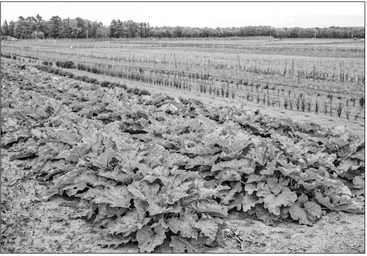New farmers market


Vendors will sell goods this summer in Marathon City
Marathon Village Board members unanimously approved last Wednesday for the newly-created Marathon City Farmers Market to allow vendors to sell vegetables and other goods from 2-6 p.m. every Thursday from June 23 until Oct. 27. The farmers market is located on the gravel block in downtown Marathon where George’s Market once stood.
The village is also giving the Marathon City Farmers Market board of directors $250 to help it pay for upfront costs associated with establishing a not-for-profit entity, such as buying yard signs to let people who are traveling on highways like STH 29 know when the farmers market is happening.
Marathon City Farmers Market board of directors are president Randy Wokatsch, vice president Shelley Kage, treasurer Dale Oestreich and secretary Kerry Wokatsch.
Randy Wokatsch said the Marathon City Farmers Market is still looking for new board members and also vendors to sell their goods at the weekly market. It costs a vendor $75 per season to sell their goods at every Thursday market from June 23 until Oct. 27. It costs $10 for a vendor to only sell their goods on one particular day at the market, for example, if a person only grows sweet corn to sell at the market. Dale Oestreich said vendors can sell whatever goods they want at the farmers market including vegetables, maple syrup, handmade soaps and crafts.
Marathon City Farmers Market’s board of directors is hoping to have at least 12 full-time vendors selling food at the market during this first summer. The 12 vendors would be on the block facing toward Main Street. Each vendor booth will be five feet from the sidewalk and there will be 20 feet between each vendor booth. Vendors will park their vehicles behind their booths.
Randy Wokatsch already has a food supply chain set up for the Marathon City Farmers Market. He is renting parcels on 52 acres of his land to Hmongs from the Wausau area who are growing vegetable gardens on them at his farm located on Whippoorwill Road in the town of Marathon.
“These vegetable growers are already selling at farmers markets in Appleton, Marshfield and Minocqua, so why in the world wouldn’t we want them to sell in their backyard of Marathon?” Randy Wokatsch said to Marathon Village Board members in stating his case for a farmers market.
Andy Kurtz, Village of Marathon administrator, agreed with Randy Wokatsch that Marathon City needs a farmers market.
“I feel it is good for the village and good for that lot,” Kurtz said.
Marathon City Farmers Market picked up its first business sponsorship from Marathon Cheese Corp. last Wednesday to help it pay for its upfront costs. These include $270 in liability insurance for the year and $675 to rent a port-a potty for vendors and shoppers to use on site, as is required by the Marathon County Health Department. Randy Wokatsch is hoping Marathon City Farmers Market will secure more business sponsorships in the future.

GROWER HAS PLENTY OF RHUBARB- Wausau resident Youa Chang’s rhubarb crop looks big and healthy on the four acres of land she leases from Randy Wokatsch in the town of Marathon.
